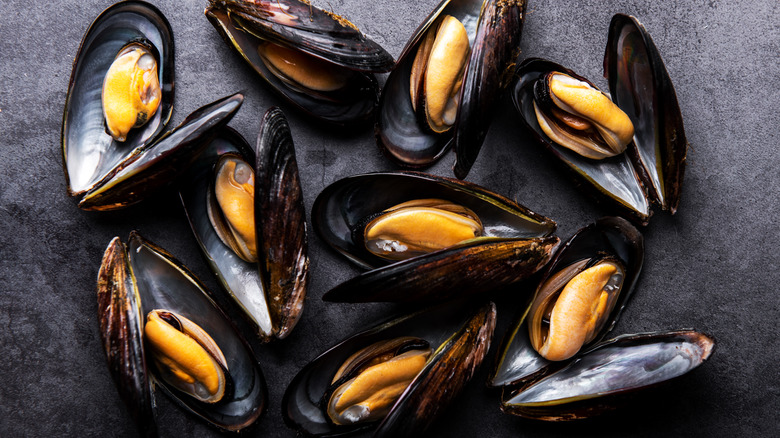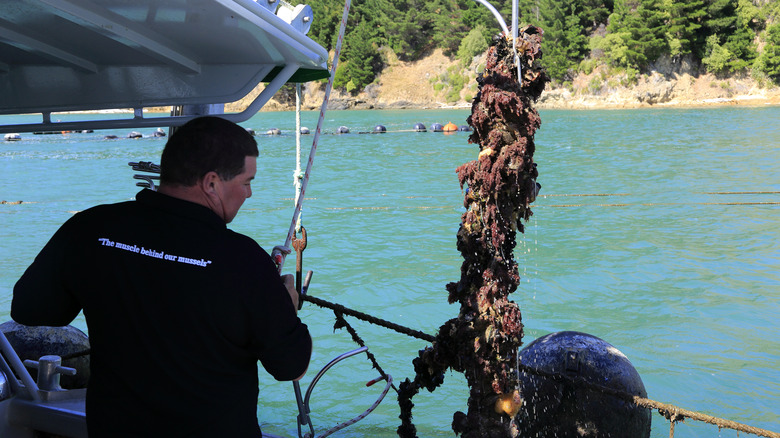Why Don't Mussels Have As Much Grit As Clams?
Mussels and clams are both shelled mollusks that can make a seafood dinner delicious and interactive — there's something about digging the tasty meat out of the shells that's just really satisfying. If you've ever gone to a seafood market or small fishmonger to buy your shellfish, you may have noticed that clams can be quite gritty and need an extensive cleaning process to remove all the sand (known as "purging"), while mussels have significantly less grit. While it's still important to clean your mussels right before cooking, the way most mussels are farmed prevents them from getting too gritty in the first place.
Mussels are primarily farmed using longlines, which involves ropes being suspended from buoys in open, deep water. The farmers collect mussel larvae, known as "spat," which naturally attach themselves to surfaces. When these larvae attach to the long lines, they then grow and do their thing — that is, filtering water through their open shells. This happens to be how mussels feed but is also excellent for the ecosystem as they filter out excess nutrients and keep the habitat balanced. However, an open shell means sand and dirt will inevitably make their way inside, leading to a gritty texture on the meat of the mussel. But since the mussels are suspended in open water as opposed to living on the seabed, significantly less sand makes its way into the shell of the mussels. Compare that to clams, which like to be buried in the sand or mud, and therefore need to be more thoroughly cleaned after they are harvested.
Do I need to clean my mussels?
If you've ever eaten mussels at a restaurant or purchased them yourself at a fish market, chances are they were farmed. According to Seafood Watch, 94% of the world's mussel production comes from farms. This means that the harvested mussels were likely suspended mid-water until their harvest, and probably aren't filled with sand and grit like their fellow bivalve mollusk, the clam. However, commercially farmed mussels typically go through a process where they are cleaned, have their beards removed (a tough membrane that is unpleasant to eat), and then inspected before being packed and shipped to various destinations. This means that if you go to a supermarket or reliable fish market to buy your mussels, they have probably already been through a cleaning process.
However, you can give them one more thorough cleanse when you bring them home by soaking them in cold, salted water for about 20 minutes immediately before you plan on cooking them. Soaking them any longer could kill the mussel and you want your mussels to be alive when you begin cooking, as dead mussels spoil very quickly and can cause you to get sick. Then, rinse them thoroughly under cold, running water, and use a stiff brush to scrub off any remaining dirt or debris you can see. This ensures that your mussels are as clean and grit-free as possible. There are many differences between mussels and clams, and differences in grittiness due to how they are harvested is a major one.

